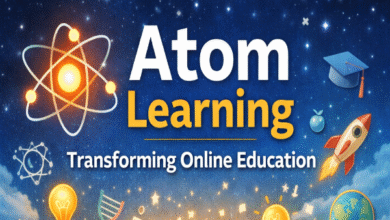AEIS Exam Preparation Tips: Ultimate Guide for International Students Aiming for Singapore Schools in 2026

The Admissions Exercise for International Students (AEIS) serves as a gateway for many students aspiring to enter Singapore’s esteemed public education system. Administered by the Ministry of Education (MOE), this annual examination assesses proficiency in English and Mathematics to determine placement in local primary and secondary schools. For those aiming to sit for the 2026 AEIS exam, early and structured preparation is essential to stand out among thousands of applicants worldwide.
This guide provides a comprehensive strategy for international students to prepare effectively, with a focus on consistent study habits, familiarity with the exam format, and practical ways to build confidence.
Understanding the AEIS Examination Format
Before beginning any preparation, it is vital to understand the structure of the test. The AEIS exam comprises two main subjects — English and Mathematics. Both subjects are aligned with Singapore’s curriculum standards and aim to assess a student’s readiness to integrate into the national education system.
English Paper: This section evaluates reading comprehension, grammar, vocabulary, and writing. Students must demonstrate an ability to use the language accurately and coherently.
Mathematics Paper: This assesses problem-solving ability, numerical reasoning, and the application of mathematical concepts. The questions are designed to gauge both understanding and logical thinking rather than rote memorisation.
Knowing the structure helps students plan their study time more efficiently and concentrate on areas that carry more weight.
Setting a Realistic Study Timeline
Many students make the mistake of beginning their preparation too late. A gradual and structured plan works best for long-term retention. Ideally, preparation should start at least 10 to 12 months before the exam.
Months 1–3: Focus on understanding the syllabus and identifying weak areas. Review basic English grammar and foundational mathematical topics such as fractions, ratios, and word problems.
Months 4–6: Start practising AEIS-style papers and set weekly goals for reading comprehension and math problem-solving.
Months 7–9: Work on timing and accuracy. Attempt full mock tests under exam conditions to build endurance and confidence.
Final 3 Months: Revise core concepts, review common mistakes, and strengthen writing and comprehension skills.
This phased approach prevents burnout and ensures consistent progress.
Building Strong English Language Skills
English is often the subject where international students face the most difficulty, especially for those from non-English-speaking countries. The key to success lies in daily practice and exposure to well-written materials.
Reading: Encourage reading a wide variety of content — from newspapers like The Straits Times to short stories and essays. This improves comprehension and vocabulary.
Writing: Regular essay writing helps in structuring ideas clearly. Focus on planning before writing, using proper paragraphing, and avoiding repetition of ideas.
Grammar Practice: Grammar drills are essential for mastering sentence structure. Pay special attention to tenses, subject-verb agreement, and prepositions.
Listening and Speaking: While AEIS does not include an oral test, good listening and speaking skills improve overall language fluency and understanding, which can indirectly help with comprehension.
Strengthening Mathematical Thinking
Mathematics in the AEIS is not only about solving equations but also about understanding logic and applying reasoning. Singapore’s math syllabus emphasizes critical thinking and analytical problem-solving.
Concept Clarity: Students must have a solid understanding of number operations, geometry, measurement, and data handling.
Practice Variety: Working with different types of questions helps develop adaptability. Instead of memorising solutions, focus on understanding the reasoning behind each step.
Timed Practice: The ability to manage time is crucial. Students should practise solving questions quickly and accurately within set time limits.
Use of Past Papers: Reviewing previous AEIS-style papers helps identify recurring patterns and familiar question types.
Enrolling in a Reputable Tuition Centre
For many students, enrolling in an AEIS tuition programme can provide the necessary structure and expert guidance. Qualified tutors familiar with Singapore’s curriculum can help students understand what the examiners expect. These centres typically conduct diagnostic tests to assess a student’s strengths and weaknesses, allowing for targeted improvement.
Parents should ensure the tuition centre they choose has experienced educators, proven teaching methods, and regular progress assessments. Personalised feedback plays a crucial role in ensuring the student’s readiness before the test date.
Creating a Productive Study Environment
A well-organised study environment significantly influences concentration and motivation. Students should maintain a clean, quiet space free from distractions. Establishing a fixed daily schedule helps build discipline. It is equally important to balance study with short breaks to maintain mental clarity.
Students preparing for the AEIS often face pressure, especially when balancing schoolwork and test preparation. Hence, mental well-being should never be overlooked. Adequate sleep, exercise, and a balanced diet contribute greatly to better focus and performance.
Practising with Realistic Mock Exams
Mock exams are one of the most effective preparation tools. They allow students to simulate actual test conditions and identify areas that require improvement. After each mock test, reviewing errors and understanding their causes is more valuable than simply checking scores.
Mock exams also build confidence by helping students manage stress and time efficiently during the actual test. Over time, this practice reduces anxiety and improves overall performance.
Staying Updated on AEIS Registration and Guidelines
Each year, the Ministry of Education releases updated details regarding AEIS registration dates, application procedures, and test schedules. Students and parents should regularly check the official MOE website to avoid missing deadlines. Staying informed ensures smooth planning and eliminates unnecessary last-minute stress.
Maintaining a Positive and Consistent Mindset
Consistency often matters more than intensity. Students who maintain steady progress over months tend to perform better than those who study intensively for short bursts. A positive outlook keeps motivation high, especially during challenging topics or practice sessions.
Parents can support by offering encouragement rather than pressure. Confidence grows naturally through daily effort, not overnight success.
Final Thoughts
Preparing for the AEIS exam requires a mix of academic readiness, strategic planning, and emotional resilience. By starting early, maintaining a balanced study schedule, and focusing equally on English and Mathematics, international students can greatly increase their chances of securing a place in a Singapore school in 2026.
A well-prepared student not only performs well in the AEIS but also adapts smoothly to Singapore’s dynamic education environment, setting a strong foundation for future academic growth.



